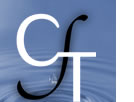 |
||||||||||
Team Teaching
Introduction
Experienced teachers often recall team teaching experiences as their best and worst experiences in a classroom. Like any form of collaborative scholarship, successful team teaching integrates the strengths of multiple viewpoints in a synthetic endeavor that no single member of the project could have completed independently. At its best, team teaching allows students and faculty to benefit from the healthy exchange of ideas in a setting defined by mutual respect and a shared interest in a topic. At its worst, team teaching can create a fragmented or even hostile environment in which instructors undermine each other and compromise the academic ideal of civil discourse.
Cultivating Colleagueship
Finding (or cultivating) a good fit in personality, expertise, and pedagogical philosophy is important to functioning as an effective instructional pair; strong mismatches in these areas can pose serious obstacles. The following questions may be useful as you consider team teaching with a colleague:
- Do we share a mutual respect for one another?
- Are we free to disagree respectfully without putting our careers in jeopardy?
- Are our areas of expertise more likely to complement each other or compete for dominance in the course?
- Are we both willing to compromise on issues around which we are used to having a high degree of autonomy (eg. grading standards, course content, classroom management)?
Constructing a Course
Even the most complementary pairings will find it difficult to be successful if they are not working toward the same goals. Proper course design is a pragmatic step for any course, but it is particularly important for a team-taught course. By exploring individual assumptions about the goals and methods of a course and reaching a consensus, co-instructors dramatically improve their chances of offering a compelling, coherent course. Conversely, by not working together in such a course design process, co-instructors run the risk of outcomes such as the following:
- Serial or parallel teaching that splits time between two fundamentally different approaches can leave students confused; moreover, it fails to take advantage of the opportunity for instructors to model rigorous, courteous academic discourse.
- Co-instructors who improvise policies or assignments independently create an environment that promotes triangulation (students playing one instructor against the other) and inconsistency.
The CFT’s web module on Course Design and its Course Design Working Groups offer guidance and resources for instructors as they develop or refine their course offerings.
In addition to the normal challenges of developing course content and procedures, co-instructors must decide how to share the teaching responsibilities. Two heads may be better than one at modeling academic discourse, presenting ideas in a variety of ways, facilitating student discussions, and evaluating student work, but they also may be prone to replacing student discussion with expert opinions, contradicting one another, and getting caught up in debating minor points to the detriment of student learning.
Thus, as a part of course design, co-instructors should consider the following questions:
- What responsibilities will be shared by the instructors?
- What responsibilities will be divided generally (across the semester) or specifically (on particular days)?
- What are the responsibilities of the instructor “in charge” of a particular event or assignment?
- How can the other instructor(s) facilitate student learning by assisting the instructor with the primary responsibility for a given event or assignment?
- How will instructors handle disagreements about content or procedure without undermining one another or compromising student learning?
- How and when will instructors meet to discuss the course and consider changes to content or procedures throughout the semester?
Additional Resources
Web:
- Ten Commandments of Team Teaching from a talk by Stanford Professors Joshua Landy and Lanier Anderson.
- “Structuring and Delivering Interdisciplinary Courses: Approximating the Ideal” In Davis, James R. Interdisciplinary Courses and Team Teaching. Phoenix: American Council on Education/Oryx Press Series on Higher Education, 1997.
Center for Teaching Library:
- Bess, James L. Teaching alone, teaching together : transforming the structure of teams for teaching. San Francisco : Jossey-Bass, 2000.
- Davis, James R. Interdisciplinary Courses and Team Teaching. Phoenix: American Council on Education/Oryx Press Series on Higher Education, 1997.
HOME | ABOUT CFT | PROGRAMS | SERVICES | RESOURCES
Center for Teaching |
General Questions? Web Site Questions? Copyright ©2009 |
